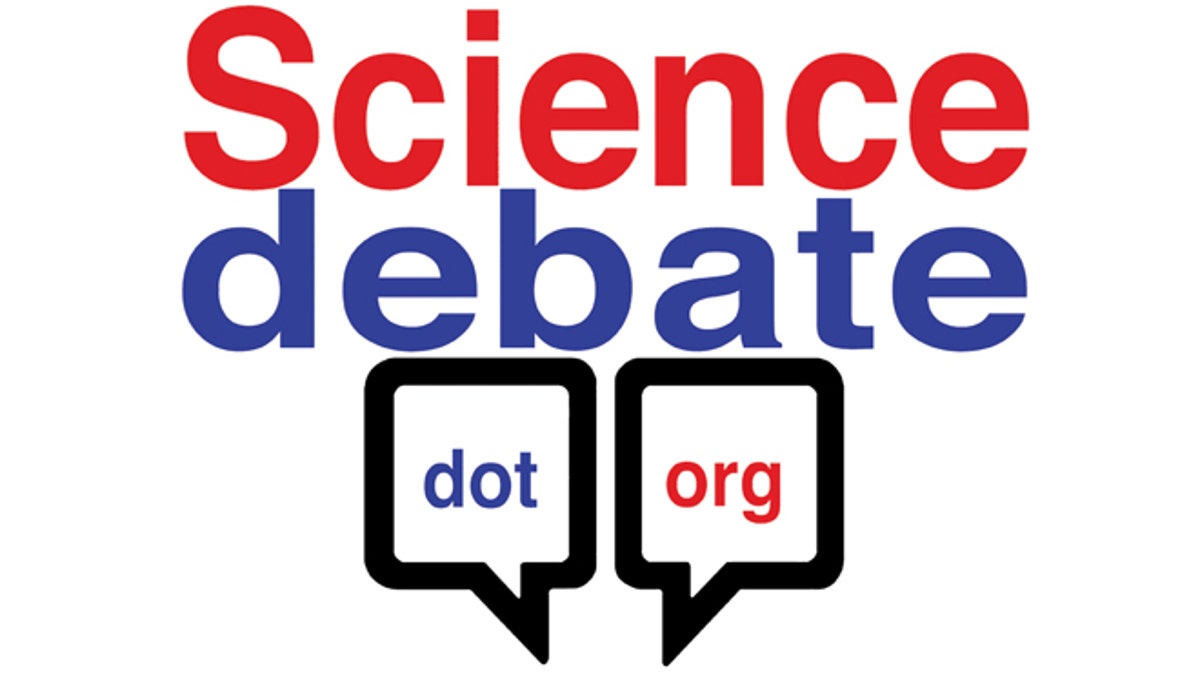
There's at least one thing President Barack Obama and Mitt Romney can agree on: Science is pretty awesome.
In response to a collection of 14 of the most pressing science policy questions facing the country over the next four years -- topics as diverse as space exploration, energy, climate change, vaccinations, food safety and more -- the two candidates for president expressed strong support for the sciences.
“Sound science is crucial to good public policy,” said Mitt Romney. The current president agrees wholeheartedly.
“Our policies should be based on the best science available and developed with transparency and public participation,” Obama said.
But beyond that, the two could agree on no aspect of science, according to answers posted Tuesday on ScienceDebate.org. The site, founded four years ago by Shawn Lawrence Otto, worked with many of the major science organizations in the country to gather the science questions and pose them to the candidates.
"We noticed the candidates for president weren’t talking about any of the major science challenges facing the country and affecting voters’ lives,” Otto told FoxNews.com.
'The candidates weren’t talking about any of the major science challenges facing the country and affecting voters’ lives.'
Across each of the questions, the candidates expressed support for science, while Romney pointedly distanced himself from Obama, his policies, and the current administration as a whole -- for example, on how to ensure that policy decisions are based on the best available science.
“During my presidency, I have been working to improve transparency and public participation – for instance, by expanding public disclosure of pollution, compliance, and other regulatory information to more efficiently provide the public with information necessary to participate in key environmental decisions,” Obama said.
Romney saw things differently.
“President Obama has repeatedly manipulated technical data to support a regulatory agenda guided by politics rather than science. For example, his ‘Utility MACT’ rule is purportedly aimed at reducing mercury pollution, yet the EPA estimates that the rule will cost $10 billion to reduce mercury pollution by only $6 million.”
“In a Romney administration, sound science will inform sound policy decisions,” he added.
Climate change was an especially divisive area, with Romney acknowledging that the planet is warming, yet advocating caution.
“I am not a scientist myself, but my best assessment of the data is that the world is getting warmer, that human activity contributes to that warming, and that policymakers should therefore consider the risk of negative consequences,” he said.
He said there was a lack of scientific consensus on the issue and wanted to see continued debate and investigation within the scientific community. Obama, on the other hand, advised continued action in the face of climate change.
“My administration has made unprecedented investments in clean energy, proposed the first-ever carbon pollution limits for new fossil fuel-fired power plants and reduced carbon emissions within the federal government,” he said.
“I will continue efforts to reduce our dependence on oil and lower our greenhouse gas emissions while creating an economy built to last.”
Regarding the future of space exploration, both candidates agree that the U.S. has a history of leading the world. But each had a different vision for addressing the crisis NASA faces.
“Two years ago I set a goal of sending humans farther into space than we have ever been -- to an asteroid by 2025 and to Mars in the 2030s,” Obama said. His administration would further that goal through the planned Orion deep space capsule, which will face a major test in 2014. And he noted the recent Curiosity rover landing on Mars.
“It’s important to remember that the $2.5 billion investment made in this project was not spent on Mars, but right here on Earth, supporting more than 7,000 jobs in at least 31 states,” he said.
Romney took issue with the current direction NASA has taken under the Obama administration, which canceled the wildly over budget space shuttle replacement in favor of investing in a private spaceflight industry.
“The current purpose and goals of the American space program are difficult to determine,” Romney wrote. “With clear, decisive, and steadfast leadership, space can once again be an engine of technology and commerce.”
He advocated “a balance of pragmatic and top-priority science,” international partnerships, an increase in space-based defense, and foreign sales of U.S. space goods to get the program back on track.
It was a welcome dose of fresh information from two candidates who have focused the race so far on jobs and the economy.
"While the candidates' answers provide important insights on a variety of key topics, they also illustrate just why a debate on these critical policy issues is so important," said Otto. "Some of the questions aren't fully answered when they become politically difficult and others could really benefit from follow-up discussion, for example, to hear what ideas the candidates have for solving problems, like climate change, that cross national boundaries."
ScienceDebate.org is supported by the American Association for the Advancement of Science (AAAS), the American Institute of Physics (AIP), the National Academy of Sciences, The Institute of Electrical and Electronics Engineers (the IEEE, the world’s largest professional association for the advancement of technology), and more.
The group also has asked some three dozen members of Congress that lead key science committees to answer a subset of eight of the fourteen questions.